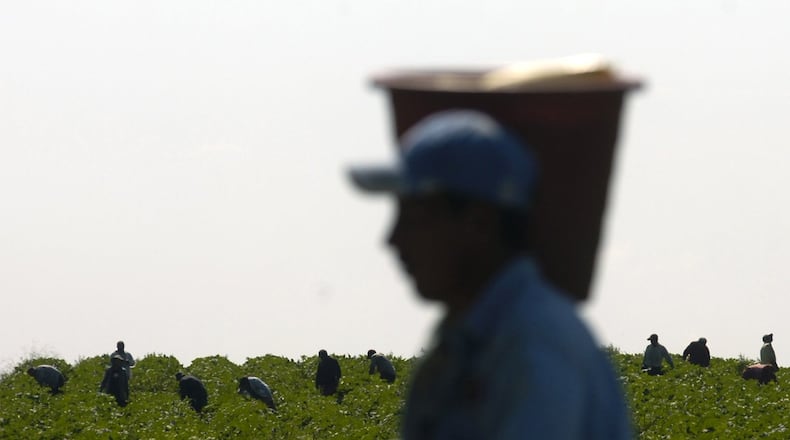The coronavirus pandemic that gave Georgia’s $2.6 billion vegetable industry an unexpected boost last year is delivering a kick in the teeth in 2021.
In 2020, the state’s farmers had strong sales because Americans working from home and government aid programs purchased more. But this year, growers are contending with increased expenses for everything from workers to cardboard boxes.
The costs of “our boxes are up 20%,” said Sam Watson, co-owner of the 700-acre Chill C Farms in Moultrie. “We are paying double for wooden pallets. Our chemical costs are up. Labor’s up. Fertilizer’s up.”
At the same time, Watson said, “we sold squash today for $6 a box. That is what I sold it for in our first crop in 2007.”
Increased transportation costs means the buyer will spend $8 to ship that $6 box of squash to some place like Philadelphia.
“It don’t take you long to do the math on that and see the problem,” Watson said.
Agriculture is still Georgia’s largest single industry. In many counties, farmers are major employers and buyers of goods that keep local economies floating and taxes coming in. A bad year in farming could impact everything from local school spending to the state budget.
The pandemic’s effects on supply chains already have been felt in other industries. Lumber prices have skyrocketed due to a pandemic-related slowdown at Georgia’s mills as well as a surge in demand because of home improvements.
Other slowdowns at factories across the globe have triggered shortages in supplies, while a spike in deliveries to home-bound people sucked up the cardboard inventory.
The state’s vegetable growers help supply the East Coast, all the way up to Canada. But finding local workers willing to work in fields has been a problem for years.
Georgia agriculture is dependent on immigrant workers who come here on H-2A visas, but the process for granting those has been slower because of the pandemic.
“Depending on who you talk to, about 65% or 70% of the farmers got all the folks they need,” said Charles Hall, director of the Georgia Fruit and Vegetable Growers Association.
Watson said migrant workers usually begin moving from Florida to Georgia around Memorial Day. The end of school will help with the tight labor because graduates and other students will come out to help pick, he said.
Georgia farmers also have complained that cheap Mexican imports of fruits and vegetables are also hurting them. It keeps them from being able to raise prices the way lumber or cardboard producers have.
“We can control for disease and water. But, when that price for products drops out of the bottom, we don’t have any control,” Hall said.
About the Author
Keep Reading
The Latest
Featured



